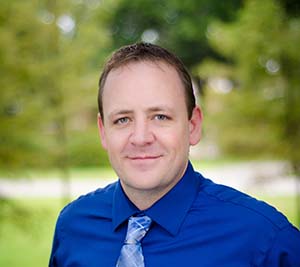Congratulations to Dr. Kevin J. Otto, UF BME associate professor, on his NIH award in collaboration with Massachusetts General Hospital, Palo Alto Research Center (PARC), and Harvard Medical School, titled Micro-coil implants for cortical activation.
Otto is the Principal Investigator for the University of Florida and will be responsible for conducting pre-clinical studies of the micro-coil implants. Micro-coil implants are advanced brain implants that can be used to stimulate neural tissue for treating disease or injuries. The ability to reliably and chronically introduce electrical signals directly into the brain is crucial for a host of efforts to create neural prostheses as well as for basic research to understand brain function.
Otto’s goal is to further these efforts by developing a novel micro-coil based magnetic stimulation device suitable for implantation into cortex or into other regions of the central nervous system. Magnetic stimulation from micro-coils offers some important advantages over conventional electric stimulation. First, unlike the electric fields arising from implanted electrodes, the fields induced by coils are spatially asymmetric and can, therefore, be harnessed to create strong activating forces along a given orientation without creating strong activating forces in orthogonal directions. A second important advantage of coils is that because magnetic fields pass readily through biological materials, the high impedance glial sheath that encapsulates cortical implants over time will not diminish the effectiveness of coils the way it can for electrodes. Finally, because there is no direct contact between the coil and neural tissue, electric current does not flow into the brain, making coils safer and less prone to many of the problems that occur at the interface between electrode and brain. Thus a coil-based prosthetic provides more precise activation of cortical targets than does electrodes and will remain stable over longer periods of time.
Otto’s Lab will receive the implants, perform the surgical implantation, collect data evaluating the implant function including electrochemistry, electrical impedance spectroscopy, and histology, and will perform the majority of the analysis. The aims of this proposal are to further enhance the efficacy and selectivity of micro- coils by optimizing coil designs, developing stimulation strategies to effectively drive neuronal circuits and longitudinal testing to confirm performance metrics over time.
Join us in congratulating Dr. Otto in his successful award.
